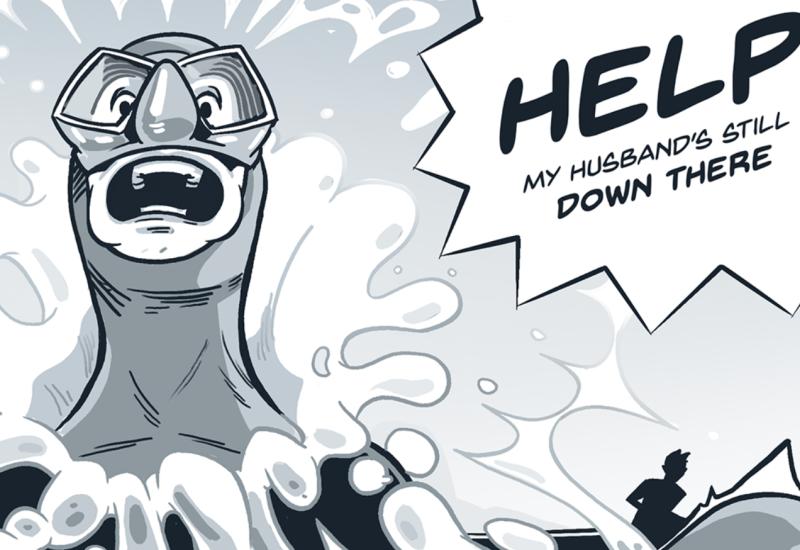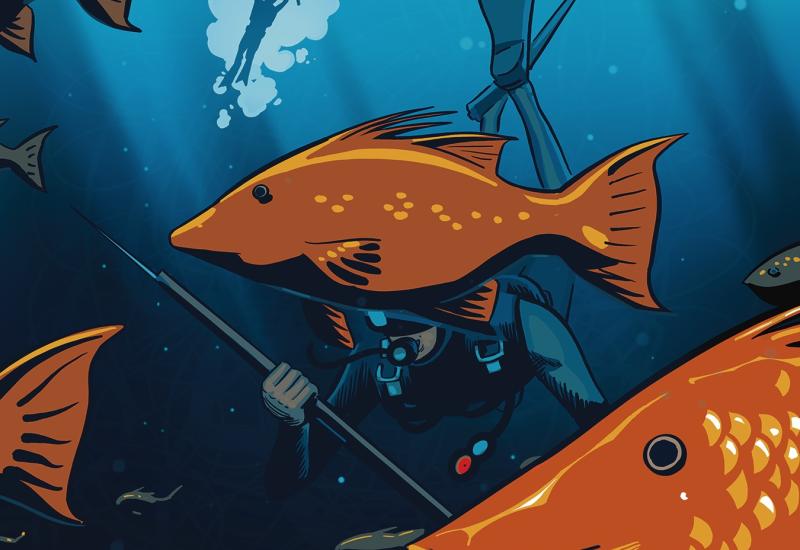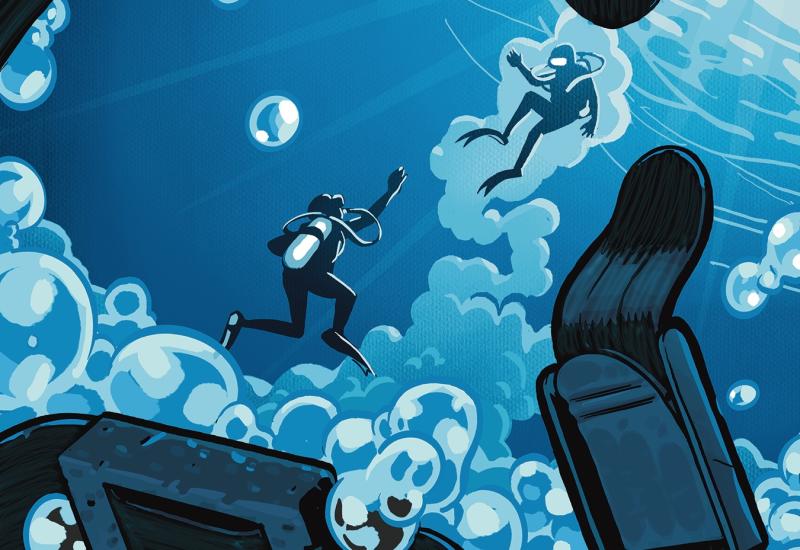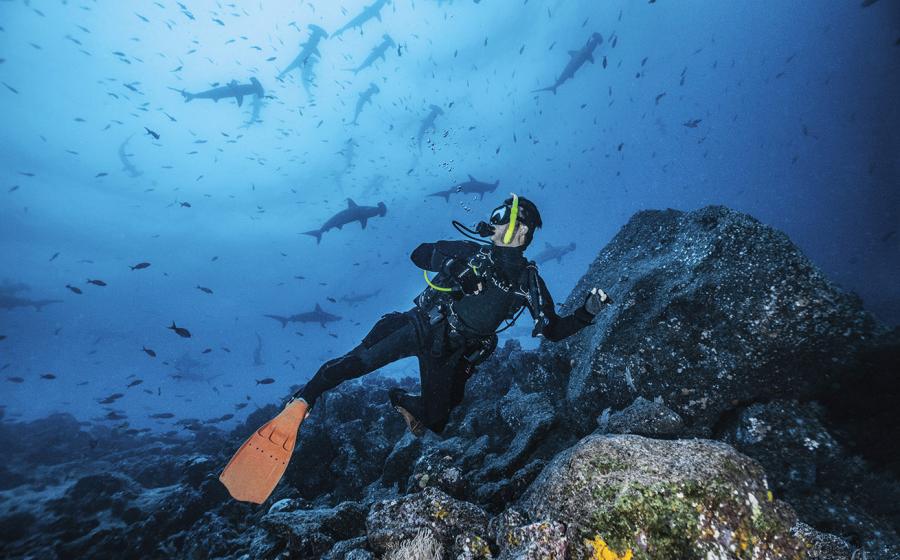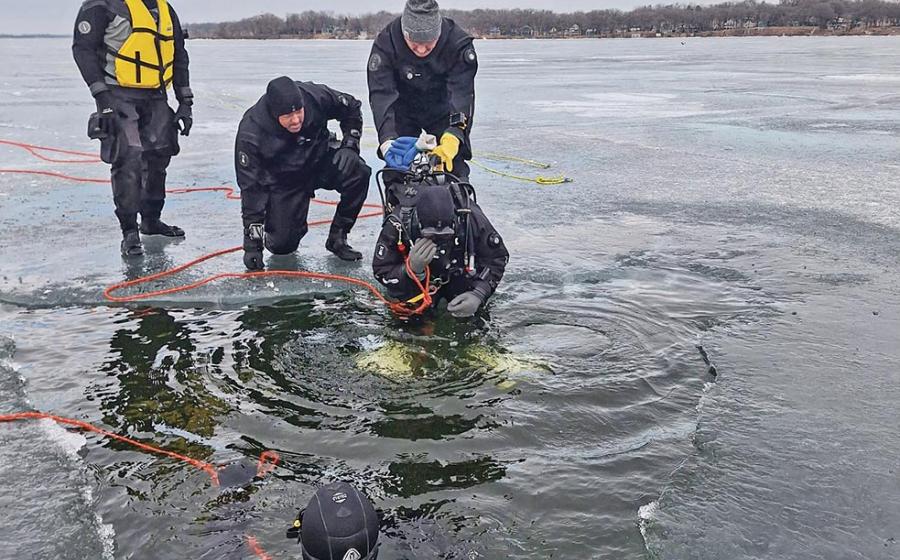The Risks of Task Overloading While Diving
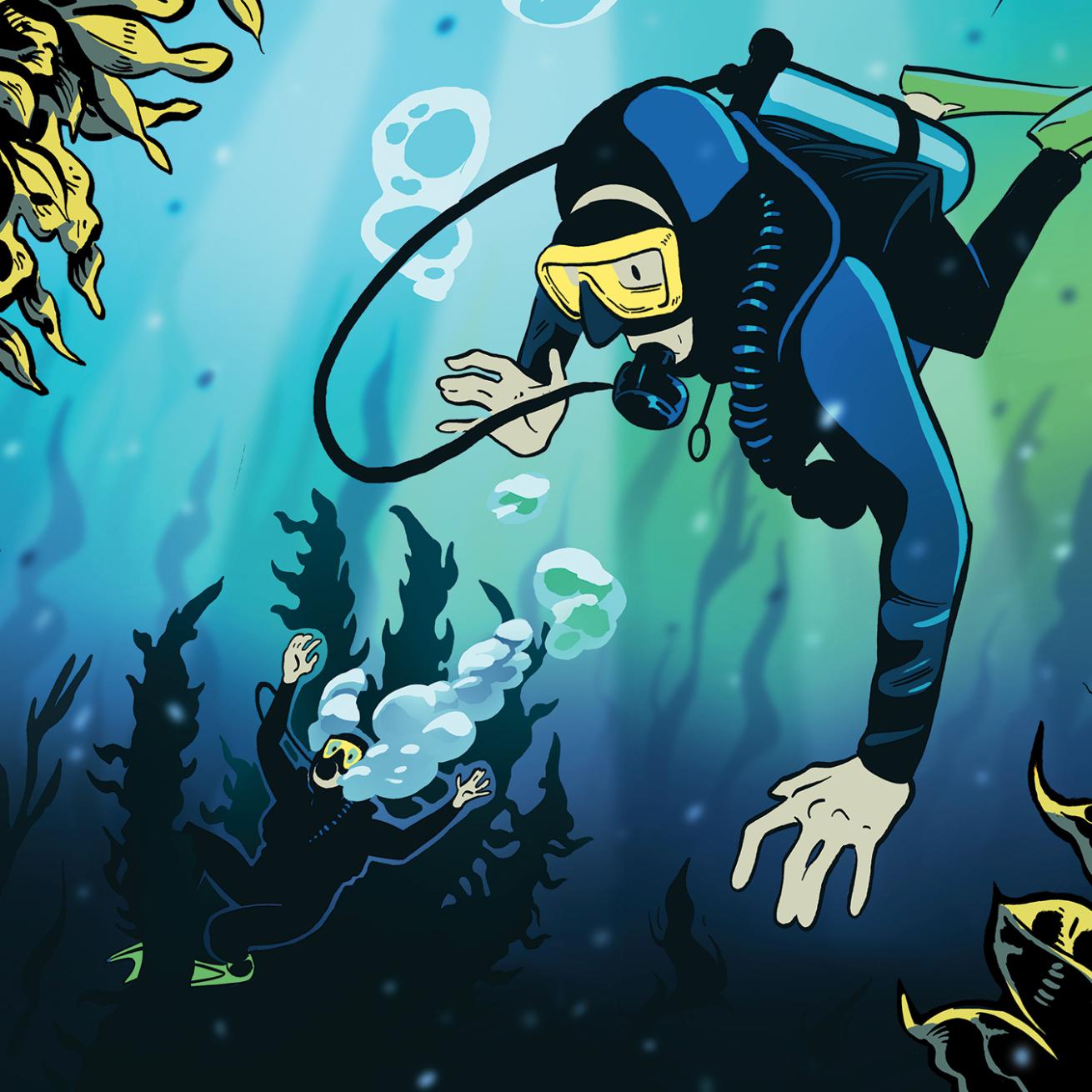
Steven P. Hughes
Rick was starting to get scared. He was close to the surface, but he was afraid he was going to run out of air before he made it. The dive guide signaled for him to wait, but he just couldn’t do it. He had to get to the surface.
The Diver
A 27-year-old male diver, Rick had been certified for eight years and held advanced open water and nitrox certifications. However, Rick had only made 14 dives in his life. Knowing he was going to take this trip, he made a PADI ReActivate Refresher dive a month before at a local quarry in preparation. For his refresher dive, he wore the same gear he used to dive in his home waters, including a 3 mm wetsuit. This was not the gear he would use on his trip.
Related Reading: Why You Should Never Skip Freediving Safety Protocols
The Dive
Rick was traveling from overseas to an area with colder water than he was typically used to. When he got there, he rented all his dive equipment. Despite being uncertified and inexperienced with the equipment, Rick was able to rent and use a drysuit.
On the day of the dive, Rick, his dive guide and four other divers headed out on a boat to a local dive site. The site was known for strong currents, and the water was 45 degrees Fahrenheit. Rick stayed with the guide the entire time as they dived to 40 feet of seawater for approximately 17 minutes. That’s when Rick signaled to the guide that he was down to 1,000 psi.
The Incident
The guide began escorting Rick to the surface, but they ran into a downward current and had to kick hard to ascend. With 20 feet to get to the surface, Rick was down to 500 psi and the guide was holding onto Rick to bring him up slowly. About 10 feet from the surface, Rick got entangled in kelp. The guide reported later that he had signaled Rick to hold onto his BCD while the guide untangled the kelp from Rick’s regulator. Rick let go of the guide and was last seen being carried away by a strong undertow.
His body was recovered seven weeks later after being spotted on the surface not far from the dive site.
Analysis
Diving in different situations and in difficult environments can be tricky. You should always seek a local guide when you are transitioning from one type of diving to a completely different one. My first 60 or so dives were in a local lake. I had enough dives under my belt to begin divemaster training, but on my first dive in the ocean, I felt like a newbie. If all of your diving has been in warm water, heading to a cold-water environment can be unsettling. The reverse is true, too.
There is also a diving maxim about not having too many “firsts” on a dive. Dealing with new gear and a new environment, with strangers, will put you in an uncomfortable situation before you even get in the water.
Rick had a guide, which was a good thing. He was probably struggling with buoyancy control in the rented drysuit that he wasn’t certified to use. Additionally, the last place you want to try out a new piece of equipment is in a difficult environment. The unusual currents and the additional effort to ascend made that even worse. The amount of weight he was carrying was not recorded, but it would not be surprising to learn he was overweighted as well.
Rick had pursued continuing education as a diver. But nearly all his logged dives were training dives with an instructor. Certifications and experience aren’t the same thing. Certification opens the door to gaining more experience. Making 60 dives in the same environment with no waves or currents did not prepare me for diving off a boat into the ocean.
Ultimately, the same issue that comes up in nearly every dive accident analyzed in this column is panic. He was uncomfortable for multiple reasons, and that led to a cascade of problems that cost Rick his life.
Related Reading: The Dangers of Skipping Dive Protocol
Lessons For Life
Tackle one new challenge at a time. Get training to use new equipment and for new environments. Dive regularly and practice basic dive skills, and always dive within your training.
Seek Guidance. When changing up your normal dive location, hire a guide who can help prepare you for local challenges.
Call it if you’re uncomfortable. Don’t feel obligated to make a dive you aren’t prepared for—even if you have already paid for it. Anyone can call a dive at any time, for any reason, no questions asked.


